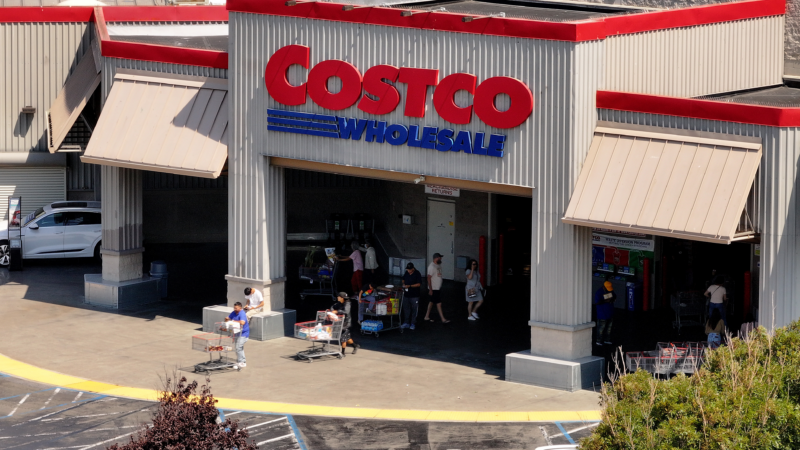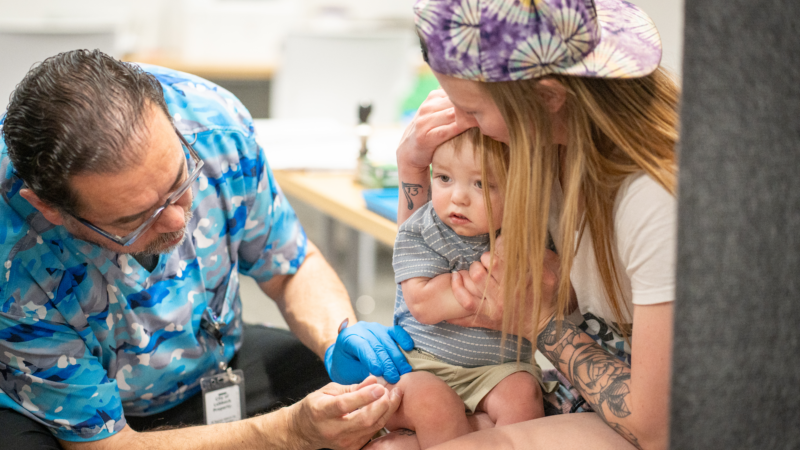Costco’s shareholders overwhelmingly reject anti-DEI proposal
Costco’s shareholders rejected a proposal by a conservative think tank aimed at getting the company to roll back its diversity hiring practices, the Associated Press reports — a move that leaves the world’s third-largest retailer an outlier as many U.S.-based corporations retreat from diversity, equity and inclusion initiatives.
The company’s board had recommended that shareholders reject the proposal by the National Center for Public Policy Research (NCPPR), arguing that it wasn’t in line with Costco’s “commitment to an enterprise rooted in respect.”
The vote came down around 5 p.m. ET (2 p.m. PT) Thursday during a shareholders’ meeting at the company’s Issaquah, Wash., headquarters.
In the vote, 98% of shareholders rejected the proposal.
Ahead of the vote, the Costco board defended its DEI initiatives as good for business.
“Our efforts at diversity, equity and inclusion remind and reinforce with everyone at our Company the importance of creating opportunities for all,” it said. “We believe that these efforts enhance our capacity to attract and retain employees who will help our business succeed.”
The board went on to say, “We regularly evaluate our practices concerning compliance with law, including evolving Supreme Court decisions. We believe that our diversity, equity and inclusion efforts are legally appropriate, and nothing in the proposal demonstrates otherwise.”
Several companies — including Walmart, McDonald’s, Meta, Lowe’s and John Deere — have recently decided to curtail or eliminate their DEI programs in the wake of the U.S. Supreme Court’s ruling in Students for Fair Admissions v. Harvard. In that case, the court held that race-based admissions programs violate the equal-protection clause of the U.S. Constitution’s 14th Amendment.
McDonald’s, in a statement announcing its decision earlier this month, said it will no longer set “aspirational representation goals,” and instead continue to embed “inclusion throughout our system.”
Costco, Apple and Microsoft have been notable exceptions — all rejecting NCPPR-led efforts to force them to reverse DEI.
In its Costco proposal, the NCPPR cited the 2023 Supreme Court case, demanding that the company conduct a financial risk analysis to determine if its DEI initiatives could make it a target for employment discrimination suits.
“With 310,000 employees, Costco likely has at least 200,000 employees who are potentially victims of this type of illegal discrimination because they are white, Asian, male or straight,” the Washington, D.C.-based think tank had argued before the vote. “Accordingly, even if only a fraction of those employees were to file suit, and only some of those prove successful, the cost to Costco could be tens of billions of dollars.”
The NCPPR also noted that several state attorneys general had warned that Fair Admissions v. Harvard could leave companies open to discrimination lawsuits. In 2023, for example, Missouri’s Republican Attorney General Andrew Bailey, in a letter to Fortune 100 CEOs, wrote that the Supreme Court decision “should place every employer and contractor on notice of the illegality of racial quotas and race-based preferences in employment and contracting practices.”
In the letter, Bailey urged companies to cease DEI programs: “If you choose not to do so, know that you will be held accountable—sooner rather than later—for your decision to continue treating people differently because of the color of their skin.”
In an internal company report last updated in December, Costco said its non-management workforce was 44.2% white; 33.1% Hispanic; 9.3% Black and 8.5% Asian.
The report said: “Our 11-member Board of Directors has four women and one person of color. For Of the company’s U.S. officers (Assistant Vice President and above), 27.7% identify as women and 19.4% identify as a race or ethnicity other than White.”
Asia markets soar, after President Trump pauses global tariffs
Asia markets followed Wall Street's gains after Trump announced a pause on higher global tariffs, but investors are still looking to Beijing for reaction.
‘Black Mirror’ creator pulls from reality in dystopian season 7, out now
Black Mirror season 7 is out now on Netflix. Charlie Brooker, the show's creator, says he's "worrying in what I hope is an entertaining way" in an interview with NPR's A Martínez.
As measles spreads, federal budget cuts force closure of vaccine clinics
Federal funding cuts, though temporarily blocked by a judge, have upended vaccination outreach across the country, including in Arizona, Minnesota, Nevada, Texas, and Washington state.
Where did U.S. humanities grants go? To projects from a baseball film to AI research
From AI research to historical preservation, programs funded by grants from the National Endowment for the Humanities reach every corner of the U.S. Now the government has terminated those grants.
A former hostage struggles with the return home
Paul Whelan was part of the largest prisoner exchange between the U.S. and Russia since the end of the Cold War. He says bureaucracy in the U.S still has him imprisoned.
Doggles and dog booties: Anchorage residents prep pets for volcanic explosion
Mount Spurr, which scientists say is likely to erupt in the coming weeks or months, is about 80 miles west of Anchorage. But ash clouds could reach the state's biggest city.








